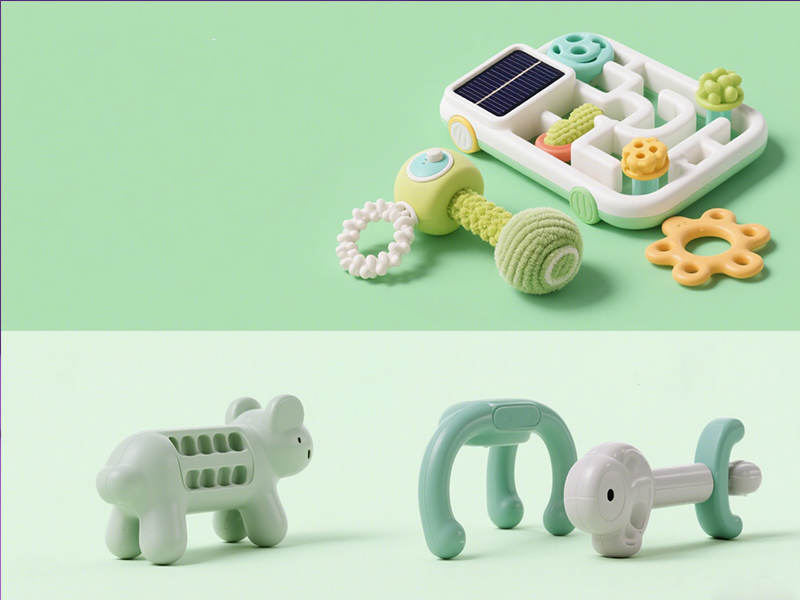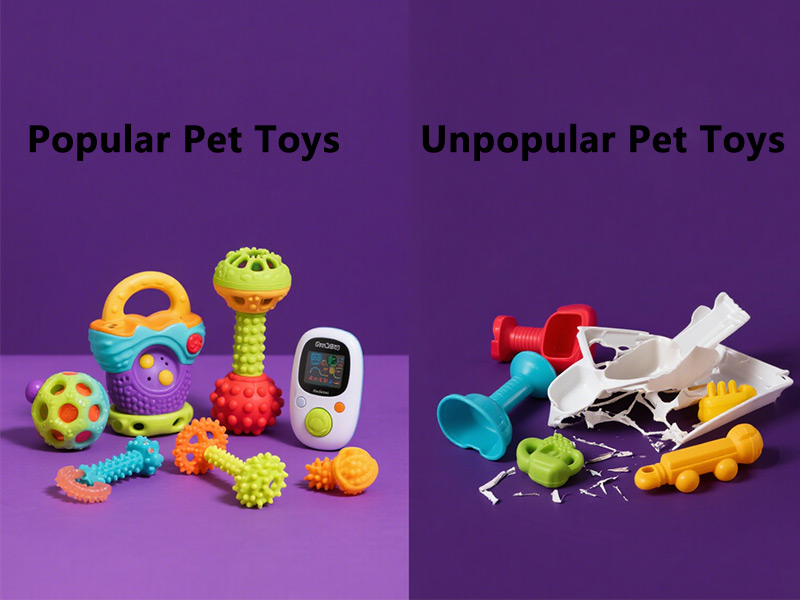The global pet industry is developing at an unprecedented rate, and the pet toy market has also seen strong growth. The demand for wholesale pet toys is also growing due to new concepts, changing consumer tastes, and increased awareness of environmental protection. Whether you are a wholesaler, a pet toy manufacturer, or a retailer looking for the next hit, it is crucial to keep up with pet toy trends.
Grand View Research says that the global pet toy market will be worth more than $6.5 billion USD by the end of 2025, with a growth rate of more than 7% per year from 2020 to 2025. The main reason for the growth is that more people are getting pets, especially millennials and Gen Z consumers who see their pets as family.
People in North America and Western Europe are moving away from cheap, mass-produced toys and toward high-quality, useful, and long-lasting ones. Amazon, Chewy, and PetSmart are just a few of the platforms that have seen huge growth in premium toy categories over the past year.

Sustainability is no longer just for a small group of people; it's for everyone. More people are making choices for their pets that reflect their own values.
Main Features:
Made from organic cotton, hemp, recycled plastic, or rubber from trees
Packaging that breaks down naturally or toy boxes that can be used again
GOTS, OEKO-TEX, and FSC are all eco-certifications.
Advice for Store Owners:
When looking for suppliers, look for ones that put a lot of emphasis on using sustainable materials and processes. To attract eco-conscious customers, make sure to mention this in your product descriptions and on social media.
More and more pet owners are working from home or in hybrid roles, which means that the need for smart toys that keep pets busy on their own is growing.
Some examples:
Toys with Bluetooth that give out treats
Chase balls that move when you touch them
Puzzle feeders and toys for training
For Store Owners:
Make sure the people who make your pet toys know how smart toys work and how to keep them safe. Check to see if the app works and how long the battery lasts.
In 2025, cognitive stimulation will be a big deal. Toys that make pets think less about their anxiety and boredom.
Main Features:
Secret storage spaces
Levels of puzzles with more than one stage
Textured materials to get people involved
Why This Is Important:
These are great for stores that want to sell to dog trainers, pet psychologists, or people who think their pets are emotionally complicated.
It's no longer a choice; durability is expected. Customers want to get their money's worth, especially when it comes to chewers.
Materials that are in high demand:
Thermoplastic Rubber (TPR)
Nylon that has been reinforced
Double-stitched fabric with more than one layer
Type of Best Seller:
Rope bones and hard chew sticks are still popular choices for pet chew toys, especially from companies that test their materials for safety and non-toxicity in a lab.
People who buy toys these days care about how they look, especially if they're going to be shared on Instagram or TikTok.
Features:
Animal shapes that are cute
Pastel colors or simple black and white
Stylish, clean designs that go with your home decor
Tip for stores:
When choosing a supplier for pet plush toys, look for ones that are safe, soft, and look good. These toys make great gifts for holidays or pet birthdays.

People are no longer buying cheap toys made of plastic that break easily or are bad for their health.
Things that went wrong:
Cracks in a few days
Things that could cause choking
Have BPA or harmful dyes in them
Risk for Retailers:
High return rates, bad reviews from customers, and damage to the brand.
Advice:
It's time to improve your supply chain if the people who make your pet toys still use generic plastic molds.
Toys that don't keep kids interested, either physically or mentally, are going away.
For example:
Basic squeaky balls that don't change
Plush toys that don't have any sound or texture
Why This Doesn't Work:
Not just one-dimensional toys, but interactive experiences are what pet parents want for their pets today.
People today want things that are unique to them, like a toy with their name on it or features that are specific to their breed.
Right Now:
More and more independent brands on Etsy, Amazon Handmade, and Shopify are making personalized toys.
What to Look For:
Pet rope toy suppliers that let retailers choose different colors, engrave names, or change the packaging.
Do your customers care more about how affordable, how well it works, or how it looks? For instance:
If you're on a budget, look for multipacks or bundles.
Buyers of luxury items: choose organic plush or smart toys.
Trendy buyers look for shapes and themes that are popular on Instagram.
Source Based on Holidays and the Time of Year
Heart-shaped rope toys for Valentine's Day
Pumpkin squeakers for Halloween
Santa chew plush toys for Christmas
Take advantage of times when people are more interested in buying.
Make sure that toys follow:
Get test reports from the company that makes or sells your pet's chew toys.
Have a mix:
That way, you can meet the needs of all types of pets.
Choose pet toy makers that have been in business for at least five years and sell their products to places like the US, UK, or Australia. Get references from past clients.
Some important signs are:
A top-tier supplier of pet plush toys will often show off prototype samples and patents.
To be sustainable, a supply chain needs:
If your supplier goes to Global Pet Expo (USA), Interzoo (Germany), or CIPS (China International Pet Show), that's also a good sign.
Quality control is very important for pet rope toy suppliers because they can't let knots come loose or materials become unsafe.
Think about custom products if you want to stand out.
OEM: Your brand, their design
ODM: You come up with the design, and they make it.
This lets you sell under your own brand, set your store apart, and make more money.
The pet toy market in 2025 is always changing, competitive, and full of chances for smart buyers. The trends show that toys are becoming more focused on design, sustainability, and interactivity. On the other hand, buyers should stay away from old, low-quality products.
You can be successful in wholesale, whether you're a big distributor or a small pet store, by knowing what pet owners want and working with the right pet toy makers.
TPR (thermoplastic rubber), nylon, and food-grade rubber are the best materials for safety and durability.
Check for certifications (BSCI, ISO), factory audits, and references from clients in other countries. Trade shows are another great place to find them.
Instagram and TikTok often show off cute plush toys, themed squeakers, and smart toys.
Yes, usually, but customers are willing to pay more for quality and long-lasting products.
Yes. Many companies that make pet toys also offer OEM/ODM services, which let you fully customize your brand.
NO 3 BINHE ROAD,YANGSHE TOWN,ZHANGJIAGANG CITY,215600
+86 17768404997
summer@deopaws.com
Copyright © 2024.Professional Pet Products Manufacturer All rights reserved.